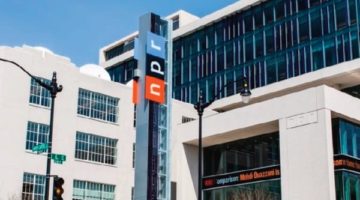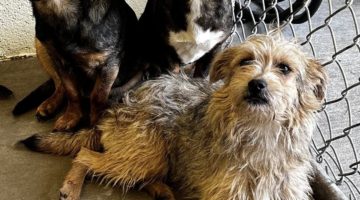Special to South Florida Times
FORT LAUDERDALE — African Americans looking to advance economically should pay attention to Africa.
And members of the Diaspora who are promoting worldwide unity among black people must create a means by which such unity can be achieved.
Speakers at a recent Pan-African gathering in Fort Lauderdale made those points as they discussed the way ahead.
“We need to develop a consciousness and see ourselves as family. Nothing will happen if the larger global African family can’t come together,” said Leonard Jeffries, WADU’s international vice president and former head of African Studies at City College in New York City.
“We can’t get Haitians to look at the Jamaicans, Jamaicans don’t want to hear anything from the Trinidadians — and we’re just talking about Fort Lauderdale. And we forget about the African Americans who opened the way and the Native Americans on whose shoulders we all stand,” said Jeffries.
He was speaking during the 2011 executive forum of the World African Diaspora Union (WADU) held Jan. 22 at the African-American Research Library and Cultural Center, 2650 Sistrunk Blvd.
WADU’s mission, said John Watusi, the group’s national chief secretary, is to help develop a united states of Africa by organizing African people around the world into a sixth Diaspora region.
“There is central, east, north, south and east Africa. We need to organize those in the Caribbean, U.S. and Europe into a sixth region,” Watusi said.
Watusi, who is based in Queens, is WADU’s former chief elder for New York state, based in Queens, an activist, writer and founder of the African Poetry Theater.
The forum drew about 25 people, who heard some of the most current thinking on unity and economic progress among people of African descent around the world.
Jeffries argued that European nations – those that are capitalist and those that were communist — had unified “to take back Africa” and that even now some nations have their eyes on the continent.
“East Indians, Arabs, Chinese and Japanese are all looking to Africa, forming a presence there,” he said. “We are the only people not looking to Africa in that way.” That level of consciousness needs to change, he said.
Dudley Thompson, WADU’s president, said black Americans alone have a spending power of $1.5 trillion. “And that money is not recycled in our communities,” he said. “We need to create our own economic power.”
A Fort Lauderdale resident, Thompson is a retired attorney who has practiced in Kenya, Tanzania, Nigeria and in native Jamaica where he served as deputy prime minister and foreign minister.
The forum also paid tribute to Thompson, who was celebrating his 94th birthday, and to Jeffries on his 74th birthday.
Dr. Kojo Vassali, co-chairman of WADU’s Florida chapter, agreed with Thompson. He said that, instead of buying homes, black people should buy land and build their own homes.
Based in Fort Lauderdale, the Florida chapter was launched in 2008 under the leadership of the late activist Kwame Afoh.
“If you look at Africa, the people buy land and, in 10 years, own a home and land that belong to their family. Here, we take up a loan through the bank, buy a home, and spend the next 30 years paying 10 times more than it’s worth. If you miss payments, they come and take it. Then you’ve lost everything,” said Vassali, a veteran activist and a priest of the Akan people of Ghana.
The African economic system, he said, is communal and no profit is made from it.
“When you participate in a susu, no one is charging interest on your revolving loan. You are not becoming a slave,” he said, referring to an informal practice by which Ghanaians save and access their money and gain limited access to credit, a form of microfinance.
“We have to be financially independent and practical,” Vassali said. “That’s how it’s done in Africa. We need to adopt that.”
Minister P.D. Menelik Harris, WADU’s secretary general, said economic power “needs to be shifted back to us.”
“Making it happen is not impossible,” said Harris, who is also director of religious heritage of the African World at Interdenominational Theological Center in Atlanta.
Black people have always done the impossible, Thompson added. “We only need to maintain leaders who will not be diverted by small ideas.”
Cynthia Roby may be reached at CynthiaRoby@bellsouth.net.












No Comment